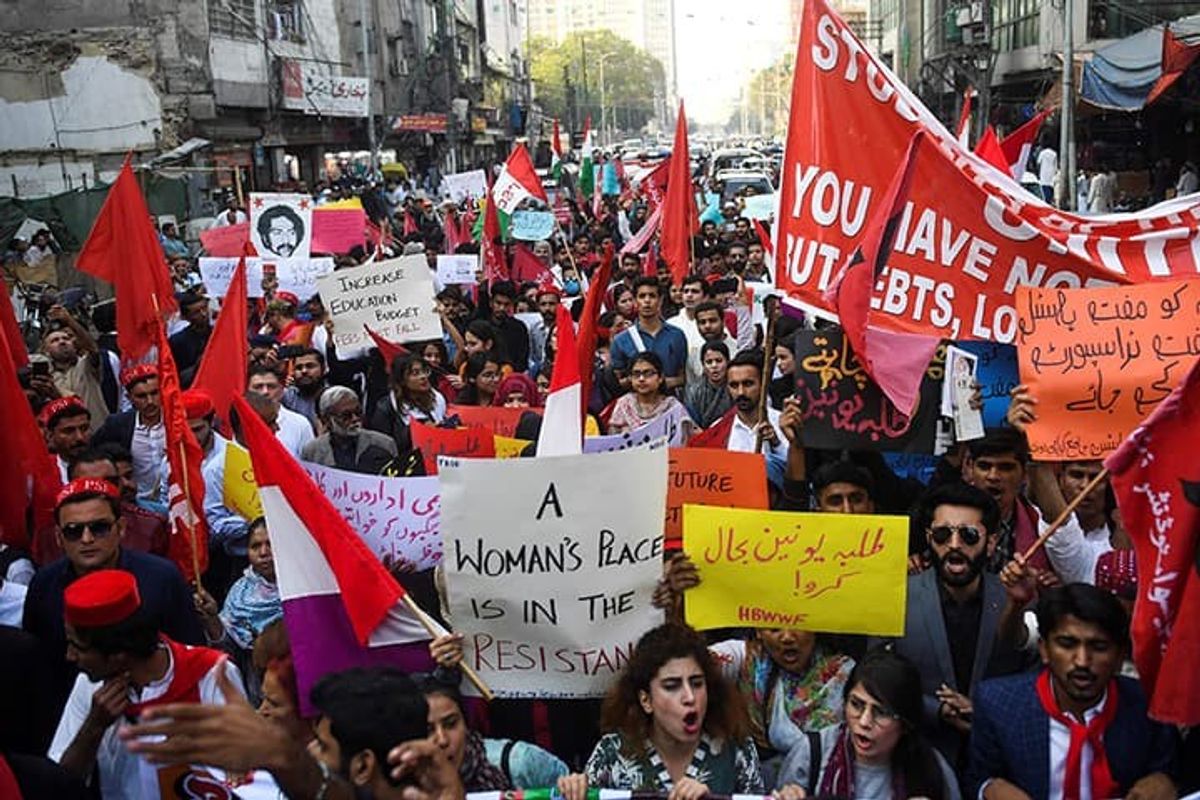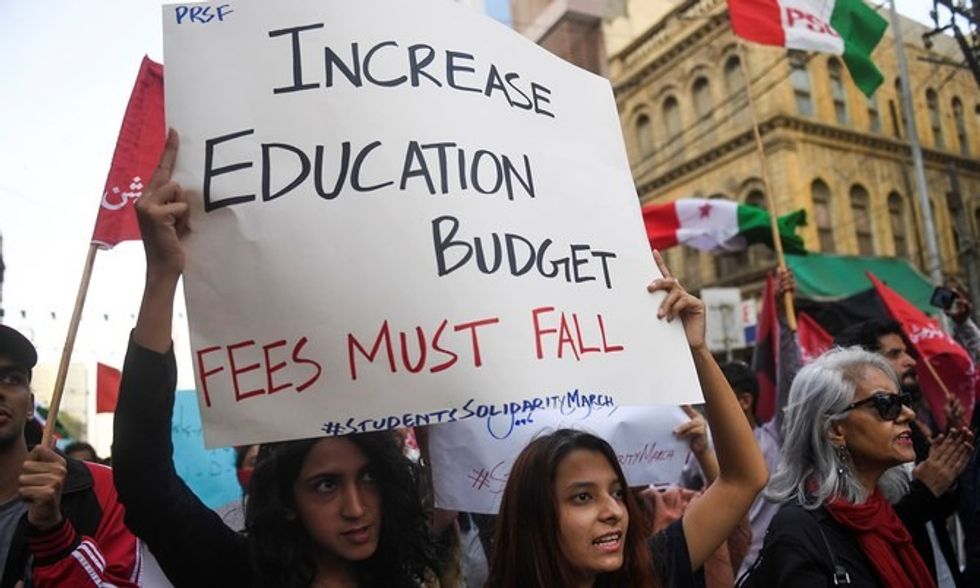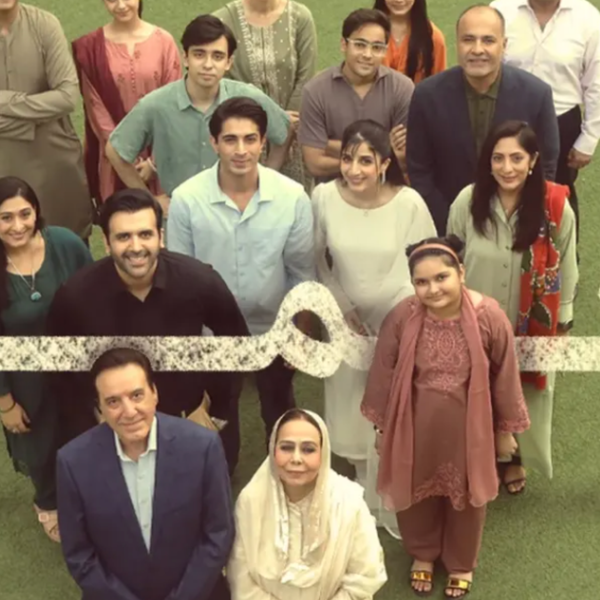Pakistan’s KP province set to revive student unions after 40-year hiatus
Provincial govt vows to restore student unions to empower youth, foster leadership, and ensure representation in institutions
News Desk
The News Desk provides timely and factual coverage of national and international events, with an emphasis on accuracy and clarity.

Protesters take part in a demonstration demanding the reinstatement of student unions, education fee cuts and better education facilities, in Karachi on November 29, 2019.
AFP/File
Student unions banned in 1984; violence surged after their suspension
Experts call unions a 'nursery of democracy' essential for leadership
Sindh lifted ban in 2022; KP move signals growing national support
Provincial assembly in Pakistan’s northwestern Khyber Pakhtunkhwa province has passed a resolution to revive student unions, marking a major step after 40 years of their dormancy.
The move follows Chief Minister Ali Amin Gandapur’s recent announcement to restore the unions to empower students and promote leadership within educational institutions.
The resolution, presented by Pakistan People’s Party (PPP) Parliamentary Leader Ahmed Kundi, highlighted the unions' importance. "Students have played a vital role in the progress of Pakistan," Kundi said. "These unions serve as platforms for addressing social, academic, and welfare issues. A strict code of conduct should ensure zero tolerance for violent activities."
A long history of bans
Student unions were first banned in 1984 under General Ziaul Haq's martial law, citing their protests as threats to his regime. Although then Prime Minister Benazir Bhutto briefly lifted the ban in 1988, the Supreme Court reimposed it in 1993. Universities were mandated to require affidavits from students, prohibiting them from political activities.
In 2008, Prime Minister Yousaf Raza Gilani also announced a revival, but no progress was made. Over the years, the unions became largely inactive, often functioning as student wings of political parties without proper elections or representation
Violence increased after ban
A 2019 research study titled "Impact of Students' Politics on the Foreign Policy of Pakistan," submitted to the University of Peshawar’s Department of International Relations, highlights a rise in campus violence following the ban on student unions.
The study reports 525 clashes occurred between 1984 and 2004, compared to 151 clashes from 1947 to 1984.
Additionally, the study reveals that 110 students were rusticated during the 1947-84 period, while the number surged to 985 between 1984 and 2004.
More alarmingly, student deaths rose sharply. From 13 deaths reported in the 1947-84 period, the number surpassed 100 in just two decades after the ban.
Support for legislation
Khyber Pakhtunkhwa Higher Education Minister Meena Khan Afridi reaffirmed the government's commitment, citing recommendations from a 2013 task force. "The revival of student unions will involve unanimous legislation to ensure proper representation in university forums," Afridi said.
Former student leader Muhammad Hassan Khan questioned why students remain deprived of unions. "Every profession has a union—drivers, journalists, even hairdressers. Why not students?" he asked.

Hassan called student unions the “nursery of democracy”. "Genuine leadership comes from these unions. If clashes are the reason for their ban, should we also ban political parties and parliament?"
The case for democracy and leadership
Wasim Haider, Provincial Nazim of Islami Jamiat Talaba KP, argued that students' unions are as critical to democracy as local government systems. "Without unions, intolerance has increased in educational institutions, and political parties remain confined to families," he said, referring to dynastic politics.
Ali Imran, an assistant professor at the University of Peshawar, welcomed the initiative. "Students’ unions must focus solely on students’ issues without political affiliations," Imran said. "An executable law is necessary to make it effective."
Legal and constitutional standing
Legal experts maintain that student unions are constitutionally protected. Former KP Advocate General Shumail Ahmed Butt cited Article 17 of the Constitution, which guarantees the right to form associations.
"The Supreme Court's 1993 order was conditional, not absolute," Butt explained. "Circumstances have changed, and provincial governments now have the authority to legislate on this matter."
Ali Gohar Durrani, a lawyer at the Peshawar High Court, echoed this view. "The provincial government can enact laws to revive student unions. The Supreme Court’s decision was for that time only."
The Supreme Court has also agreed to hear petitions challenging its 1993 verdict. Filed by Islami Jamiat Talaba and a Lahore student leader, the petitions argue that student unions are essential for democracy.
A national movement
Sindh became the first province in Pakistan to lift the ban in 2022 when its assembly passed the Sindh Students Union Bill after 38 years. Now, Khyber Pakhtunkhwa’s move signals growing support for student unions across the country.
As momentum builds, students and education experts hope the revival will pave the way for leadership development, democratic participation, and improved representation in Pakistan’s educational institutions.
– Reporting by Kamran Ali









Comments
See what people are discussing